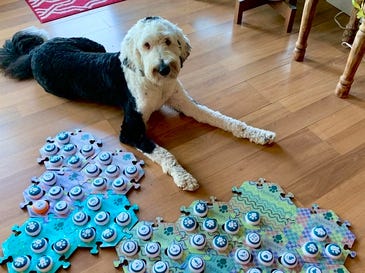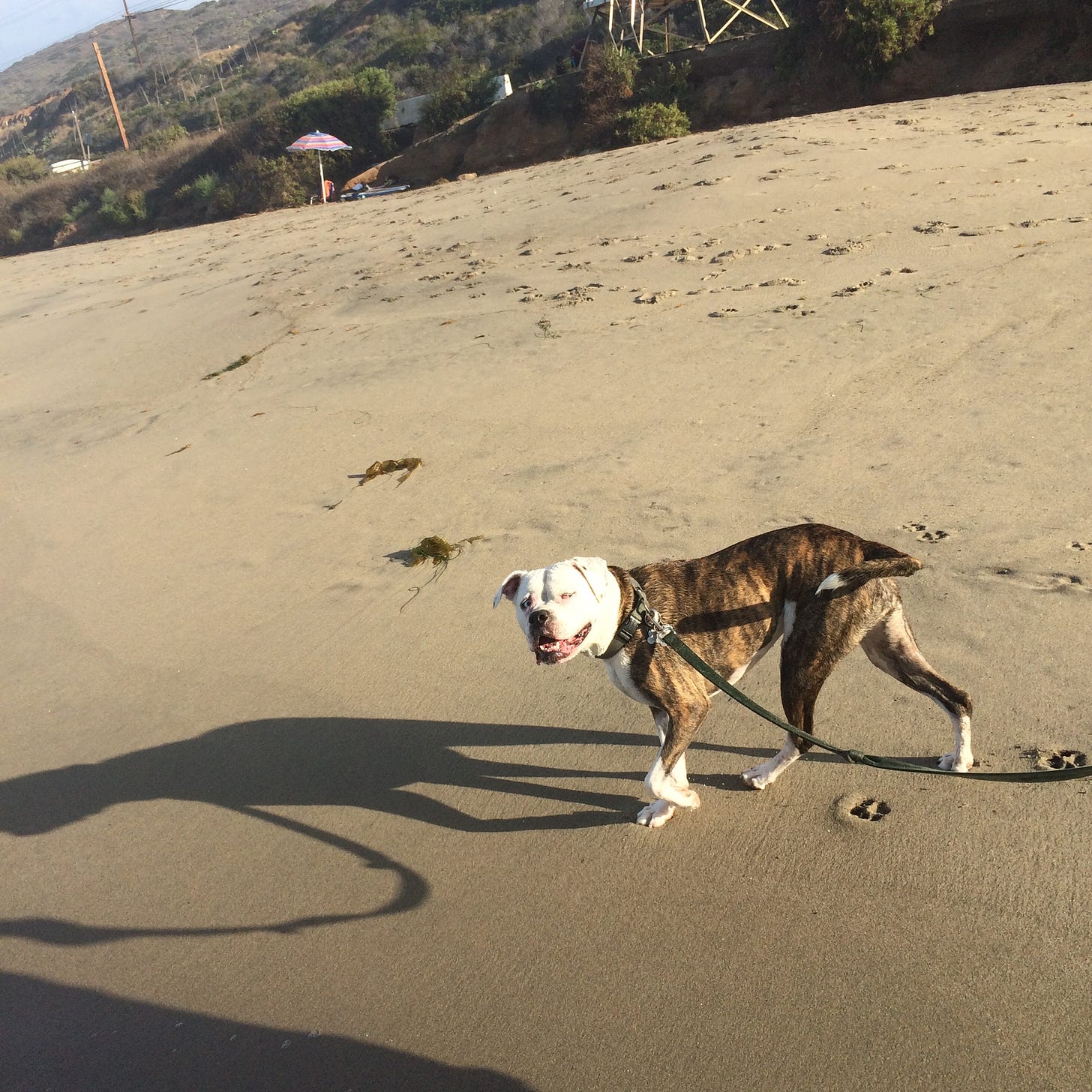Hi, friends,
I’ve been thinking a lot about families—about kinship. Partly, this is down to the time of year, and to rereading the advice column I recirculated a couple of weeks ago, to a single mum trying to accept the shape of her family as Christmas loomed.
But even outside of the holidays, getting divorced as a 36-year-old, childless woman kinda dictates the playlist of your recurring thoughts, at least for a few years. For a long time, my anxiety loop was: Will I be alone forever? Will I make a family, and if so what will it look like? Who’ll be with me when I’m old?
I know these thoughts are familiar to other people in my position. Honestly, I think anxious thoughts like this are behind a lot of people’s romantic and life decisions full-stop. The insularity of Western culture puts a tremendous pressure on people to tie other humans down or produce them outright, as an insurance policy against insecurity and solitude.
What a depressing indictment of a culture—that the only bonds we instinctively feel will be honoured are those of the nuclear family. It’s so restrictive, so deadening, so panic-inducing, so unnecessary.
As a corrective, it’s always worth remembering what the genius Donna Haraway has to say about kinship:
Making kin seems to me the thing that we most need to be doing in a world that rips us apart from each other, in a world that has already more than seven and a half billion human beings with very unequal and unjust patterns of suffering and well-being. By kin I mean those who have an enduring mutual, obligatory, non-optional, you-can’t-just-cast-that-away-when-it-gets-inconvenient, enduring relatedness that carries consequences. I have a cousin, the cousin has me; I have a dog, a dog has me.
Still: sometimes, this idea of redefining family can feel like a bit of a consolation prize. Like semantic pandering for the benefit of those who find themselves outside of mainstream family structures.
But have you heard of Bunny the talking dog?
In case you’re not up to speed: Bunny is a sheepadoodle who lives in Washington State and speaks to her owner using “word buttons” on a floor mat. As of spring 2021, Bunny had a vocabulary of 92 words; I’m sure that’s grown by now. If you’re dubious about whether Bunny really is communicating—could she just be mashing buttons at random?—take a look at the many videos her human has uploaded to TikTok. Sure, it’s not Socratic dialogue, but who the hell *is* having Socratic dialogue all day with the people they live with? There’s absolutely no doubt here that Bunny and her person are engaged in a substantive back-and-forth—or “tug”, in Bunny’s vernacular.
Bunny’s been chattering away for a few years, but she’s back in the headlines because people are freshly concerned about her. For a while now, she’s been asking her owner “Who this?” before pointedly looking in the mirror; also repeatedly asking “Who?”, reporting that she feels “big sad”, and asking for her anxiety medication. People online enough to be au fait with all this are worried that she’s having an existential crisis induced by excessive self-awareness. Are her linguistic and cognitive capacities now too advanced for her body’s capabilities and social station? Is it cruel to train a dog to be so self-attuned and articulate?
The shock that Bunny has thoughts and feelings and wants to communicate them, the sense that this makes her an aberration, and the deadeningly restrictive models of family in Western culture—it’s all part of the same thing. It all springs from the toxic belief system of a culture that has slowly, over the course of millennia and with disastrous consequences, been sealing itself away from the polyphonic truth of the living world.
At some point—or more likely, a series of inflection points over more than two millennia—the “civilized” West decided that only rational, cognitive communication between humans counted as valuable contact, as relationship. As a result, the culture I for one live in has imprisoned itself in a life-denying echo chamber. For a long time, we were seriously able to convince ourselves that we were the only sentient creatures on earth.
I think at this moment of societal collapse, Bunny’s story is captivating people not because wow can you believe a dog has feelings?, but because of *course* a dog has feelings and holy shit, how much else of life have we missed out on because of our cultural conditioning? Watching Bunny talk is like someone switching the light on. We’ve been operating in the dark this whole time. There’s so much to learn. So much to hear from other species. So much we’ve missed.
There’s a grief in this. The mistakes we’ve made, the lives we’ve failed to honour, the life we’ve left unlived, because we were shut off to the richness and variety of life and potential relationships. But once we’ve passed through that grief, there’s a great opening, a great liberation.
Look at Bunny. Or look at this queen, my beloved dog Maggie, who died almost three years ago and had more emotional maturity, wisdom, and humour than most humans I’ve met.
How can we have convinced ourselves that there’s a lack of love or connection or truth or wisdom in this world, and that we must scramble to avoid solitude? When everywhere around us, infinite wise hearts like these are beating in other-than-human chests? This is no consolation prize: it’s an invitation to an incomparably richer way to live, and a reminder that intimacy isn’t an insurance policy: it’s a commitment to care deeply and to honour lives other than our own, whatever bodies they come in.
Love,
xx Ellie



